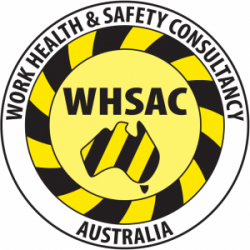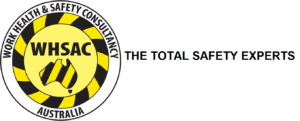Work Health and Safety Australia Consultancy is pleased to offer a full range of Workplace Rehabilitation and Return to Work Services.Workplace rehabilitation aims to assist injured workers back to safe and suitable work at the earliest possible time. It’s about finding the best ways for the worker to keep their valuable work skills and return to their normal job as soon as practical. If the worker is unable to return to their pre-injury job soon after their injury, a suitable duties program is developed to help the worker return to work safely over a period of time. Workplace rehabilitation can reduce the social and financial cost of injuries to both workers and employers. But most importantly, it helps injured workers get back to work.
 Workplace rehabilitation may involve:
Workplace rehabilitation may involve:
- a suitable duties program
- on-the-job training to acquire new job skills
- special assistance for severely injured workers.
Our Rehab & RTW Services include:
- Compile and investigate initial injury notification information
- Facilitate early communication with injured workers to clarify the nature/severity of injuries
- Develop suitable duties program (if required). This is done in consultation with the worker, the employer and treating medical practitioner
- Coordinate the worker’s return to work
- Ensure the work plan is consistent with medical certificates/report for the worker’s injuries
- Liaise with any person engaged to help in the worker’s rehabilitation and return to work
- Liaise with the insurer about worker progress and any assistance or intervention required
- Educate workers and management about workplace rehabilitation.
Stay at work: return to work
Getting back to work early can be an important part of a worker’s recovery. Click Here to find out about the return to work process and what we can do to help.
Suitable Duties Program
Work Health & Safety Australia Consultancy is pleased to offer comprehensive development and management of workplace suitable duties programs. A suitable duties plan is a graduated work program that helps injured workers improve their work fitness.
As an employer, you have a responsibility to provide suitable duties—to take all reasonable steps to help with, or provide, rehabilitation to a worker suffering a work-related injury, while they’re receiving compensation (s228 of the Workers’ Compensation and Rehabilitation Act 2003.
We work with the employer, worker,and relevant medical specialists to develop the program that matches the person’s abilities with appropriate job tasks and working hours. These tasks and hours are often increased during the program as the worker recovers. We will oversee the implementation and management of a suitable duties plan. We act as the main point of contact for all parties, liaising with the employer, worker, treating doctor and allied health providers.
To ensure that suitable duties are appropriate for both the worker and the employer we may consider changes to working hours, duties, tools, and equipment when planning the return to work. Suitable duties will be signed off by the workers treating doctor to ensure they are appropriate. Suitable duties don’t always need to be in the workers normal role. Consider what other types of duties are available within the workplace, and what projects or tasks require attention in the workplace that may be appropriate for the injured worker.
Realising the health benefits of good work
We promote remaining in work if possible, or recovering at work if you need a break. Studies show that being off work for long periods of time can significantly reduce the likelihood of a worker ever returning to work and can have negative effects on the worker and their family. Work plays an important role in rehabilitation and promotes recovery. If a person is off work for:
- 20 days, the chance of ever getting back to work is 70%
- 45 days, the chance of ever getting back to work is 50%
- 70 days, the chance of ever getting back to work is 35%
WorkCover Queensland and the Queensland Government support the Australasian Faculty of Occupational and Environmental Medicine (AFOEM) and the Royal Australasian College of Physicians’ in ‘Realising the health benefits of good work‘ .
What you can do
Help staff stay at work, or return as soon as possible by providing suitable duties. Focus on what they can do, not what they can’t. We will work with you, your worker and the treating medical providers to develop a suitable duties plan. Suitable duties can be tasks different to your worker’s usual duties, but will allow them to remain in the workplace during their recovery. Providing suitable duties will help your worker recover at work while reducing disruption to their personal and work life, and disruption to your business.
Maintaining open and honest communication is an important part of a positive return to work. Ensuring all parties are kept up to date, communicated with regularly, and supported can significantly improve rehabilitation and decrease the likelihood of someone seeking a common law claim.
For further information regarding our Rehabilitation and Return to Work Services please contact us.
